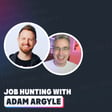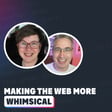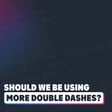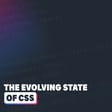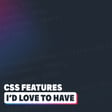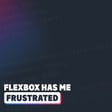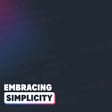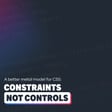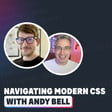Become a Creator today!Start creating today - Share your story with the world!
Start for free
00:00:00
00:00:01

Catching up on the world of WordPress with Kyle of The Admin Bar
✅ The Admin Bar: https://theadminbar.com/
In this episode, I sit down with Kyle of The Admin Bar to talk about the evolution of WordPress. We dive into how WordPress has maintained its staying power over the years, and Kyle shares insights on the challenges and opportunities within the WordPress ecosystem, including the impact of page builders. We also touch on the importance of community and collaboration.
Transcript
Introduction to General Musings Podcast
00:00:00
Speaker
Hello, my friend and friends and welcome to my podcast, General Musings. My name is Kevin and here my podcast, I like to talk about whatever is front of mind for me in any given week, usually in some way that's related to front end development.
Kevin's WordPress Journey
00:00:10
Speaker
And today we're definitely staying on topic because we're going to be talking about WordPress.
00:00:14
Speaker
Now you might not have heard me talk about WordPress much or really at all, but it's actually what I started with when it came comes to web development, at least in terms of like actually making money from it And a lot of people don't know this because the first videos I ever made for YouTube were about WordPress.
00:00:30
Speaker
And that was in January of 2016. I created a six part playlist on it specifically looking at like the admin stuff that we had back then. But you probably never saw those videos because I didn't release them.
00:00:42
Speaker
Instead, i left them there. Something didn't feel quite right. And about nine months after originally recording those and uploading them, I actually made a public video that's a lot more in line with the type of content that I do today.
00:00:53
Speaker
So yeah, we could have been in a different world.
Introducing Kyle Van Dusen
00:00:55
Speaker
There's like a parallel universe somewhere where my my channel is devoted to WordPress. ah The last big project I actually ended up doing in WordPress was probably only about three months after that playlist that I had created.
00:01:07
Speaker
So I'm actually very out of the loop when it comes to WordPress these days. I sort of keep an eye on it if I see a headline come up, but I definitely don't know very much about what's going on with it. which means I'm also not at all qualified to talk about it at this point, which is why I've brought Kyle Van Dusen on to join me today.
00:01:24
Speaker
ah If you don't know Kyle, he's been working with WordPress since just after I stopped using it. And in 2018, he founded the Admin Bar, which has become the number one community for WordPress professionals.
00:01:36
Speaker
So Kyle, thanks so much for joining me.
WordPress's Staying Power
00:01:38
Speaker
Thanks so much for having me. I feel like the WordPress community was robbed that you went a different direction. We could have had Kevin Powell and, you know, man, things would have been a little bit different for us.
00:01:47
Speaker
I think you're serving it serving it pretty well right now. I'm just ripping you off and just recreating your videos in WordPress style. So thanks for that.
00:01:58
Speaker
Um, I said in the intro WordPress is what got me into web development. I would had a hobby before that it was something I would do on and off, but when I decided to actually start doing work with it, the very first thing I went like fully and I started creating
Community and Competition
00:02:12
Speaker
completely custom themes and child themes for clients, but I haven't touched it at all. As I said, since then, and I'm really just sort I guess, curious about everything that's going on with it these days. And yeah, looking forward to some insights you might be able to give on, on all of that.
00:02:27
Speaker
but I'll try to do it justice. I feel like I got the weight of WordPress on my shoulders today. Before i we worry about sort of how it's changed over the years, though, it's been around for 20 years now, more than 20 years. I think it was in 2003, it came out, which is kind of crazy. Because in that time, WordPress, or not WordPress, but the web as a thing has changed so much. And web development has changed. We're using features and frameworks and all these things now that didn't even exist back then.
00:02:51
Speaker
But WordPress is still there. It's still strong. Why do you think it has so much staying power? Well, obviously being
Gutenberg and Site Editing Features
00:02:58
Speaker
open source helps, right? When you can get into something for little or no cost, that's definitely going to help out.
00:03:04
Speaker
And there's just been, there was so much early adoption to it that there's so much legacy built into it. So we have tons of people that have just kind of used it for a long time and continue to use it because it's something they're familiar with.
00:03:15
Speaker
It also has a much lower barrier of entry than if I was to go make a React app. I wouldn't even know where to start. ah When I started using WordPress, I didn't know how to write CSS or HTML, but I was building websites and regretfully charging for them. I probably should have got a little bit further before I was doing that, but I was able to make something functional without having those skills. So you can just service such a broad spectrum of people with WordPress because you can do the really, really basic things and let a theme and a plugin take care of everything for you.
00:03:44
Speaker
Or if you really know what you're doing, you can get in there and write all the PHP yourself and make it do all kinds of things. So it just serves such a wide spectrum of people and being open source. I think those two things really, really help it.
The WordPress Community's Growth
00:03:55
Speaker
Yeah, that does make sense. Cause I was thinking, you know, there are other options than WordPress. There's, you know, Wix, Squarespace, Webflow.
00:04:02
Speaker
um I always think of like Shopify versus the, the WooCommerce stuff. So like there is a lot of competition for it out there. And now we also have all the headless CMSs that are coming out. That's been a thing for awhile. And I was really curious when headless, like at one point,
00:04:16
Speaker
That was a really big topic in general was all the headless things. And i was like, oh, is this going to impact WordPress? But it didn't. But I think that's a good point that it's probably because, you know, a headless option a little bit higher of a barrier of entry. entry Right.
00:04:30
Speaker
And yeah, the open the open source of this of it all does definitely help. Um, the one thing I do didn't notice about it though, or I, I
Customization and Security in WordPress
00:04:40
Speaker
found this when I was working with it, it does feel like it's its own little ecosystem. Mind you, I'm saying little, it's not really little because it's massive.
00:04:48
Speaker
Um, I'm just curious if you have any thought, like as someone who's doing that, but obviously you sort of have to know what's going on with the web in general. Do you feel that same thing where it's sort of like this you're sort of off on your own in certain ways?
00:05:00
Speaker
Yeah, because Kevin Powell doesn't talk about us on his channel. So we've just been isolated, you know. No, I mean, it it is a huge, huge ecosystem of people. When we get together and do big in-person events, especially before COVID when people attended events a little bit more, you know, WordCamp Europe still has a couple thousand people attend every year at a live in-person event, which I think is pretty decent. And there's lots of like online communities for WordPress, know,
00:05:24
Speaker
So I think we are in a bit of a bubble. There are definitely people in the WordPress ecosystem that don't know anything outside of WordPress. And there's a lot of people that use WordPress and also go use something else. So I think there is, you know, I think we've kind of become the web's ah stepchild here a little bit. And i think it's easy to kind of look down on WordPress when there are much more advanced modern systems.
00:05:47
Speaker
But I think you kind of prove it with your channel quite a bit.
Advancements and Future Challenges
00:05:50
Speaker
You can get a long ways with HTML and CSS, and you can do all of that with WordPress pretty easily without having to do a bunch of JavaScript and things like that.
00:05:58
Speaker
And WordPress excels, you know, in those areas and being able to get up and running really easily. and being able to kind overcome some of the challenges where maybe even pre-AI, you would have no idea how to do something. Well, there's a plugin for it, right? So you can find your way around things. But yeah, I think that the community is huge once you get inside of it.
00:06:16
Speaker
And it's also full of some really, really good people that are community-minded, donate their time and expertise to the project, which is huge. So it's a close-knit community. So that's actually what makes me stay with WordPress, to be honest. Like the community is a huge part of why I spend my day in WordPress all day long.
00:06:34
Speaker
That's awesome. Yeah, that's cool. It makes me think of even like when I think of CSS community, it's a little bit the same in that like, there's a, you know, we all, especially now that I've started going to more live events, there's definitely like the same faces within that CSS sphere that you see a lot and people that are active online and everything. There's definitely like the ones that are really involved in it anyway, because they're at least hopefully everybody is writing it in some way or another ah that's doing what we do.
00:07:00
Speaker
Yeah, that's a good reason to to stay involved in something. Going back to when I stopped using it, i was I was looking at the timeline the timeline didn't make complete sense to me because I remembered the Gutenberg thing being a thing, but i'm I know it when it first came out, it wasn't like a core part of like a core feature. It was, I think a plugin that eventually became a core feature.
00:07:19
Speaker
And I don't remember my timing with it because I remember playing with it, but I never did anything. I never built a real project with it. It was more just playing around with it. When you got involved, was Gutenberg like full core feature?
00:07:30
Speaker
No, i think I think it was getting really, really close, but I definitely came into WordPress through the page builder side of things where people have made third party
Building a Community: Admin Bar
00:07:40
Speaker
plugins or themes or whatever that allow you to do a lot of the kind of like visual development of a website rather than having to write code or rather than having to to rely on Gutenberg.
00:07:50
Speaker
Gutenberg is an amazing text editor and it's kind of a lousy website builder. And I think it was that way then and it's still kind of that way now. Now it's gotten a lot better. But people definitely were up in arms and throwing a fit and everybody hated it And it was the end of WordPress as soon as it was forced into core, just like anything new.
00:08:07
Speaker
The adoption of it is a whole lot better now. And I think people kind of figured out, you know, this is better than the WYSIWYG editor we had before. for laying out blog post content and things like that. But it doesn't get you real far on its own
Learning Resources and Community Support
00:08:20
Speaker
if you're laying out full pages. Now they've come with some things, some full site editing and and some things that have helped with all the templating and made that better.
00:08:28
Speaker
But it's still definitely lax in some areas. There's no responsive controls. You can't write media queries in it or anything, which is, you know, seems a little it makes it a hard case to say hey build your entire website using this system right okay so that actually that clears up something i was wondering about because when i was trying to go through everything to figure out like the timeline of when things were happening i saw i came across the full site editing and i
Personal Stories and Professional Growth
00:08:50
Speaker
was like is that the visual page builders but it sounded like it was something different like it's not like a divvier elementor that would be like the visual full visual page editors So the full site editing is more like you're getting blocks on like a homepage, I guess, instead of just for a blog article that ah someone could come in and actually change the content there. Or am I getting that wrong?
00:09:08
Speaker
Yeah, it's the naming convention is definitely strange here. So what full site editing does is essentially allows you to create your page templates. So what what has always been done in PHP templates before and was always having to be done with code Full site editing allows you to edit all those, the index file and your archive files and all those kinds of things with the Gutenberg editor. And they've made some specific tools with that.
00:09:35
Speaker
ah So there's a lot of, you know, a lot of new themes coming on board that are the full site editing experience. But the adoption of that is probably a low, low percentage of how many people are actually building websites, production websites that way. I think there's a lot of experimentation and, you know, hope that things will go that way because it does unlock some things that would have been very difficult to do otherwise.
00:09:55
Speaker
But there's so many third party tools that have already allowed us to create all those templates using their proprietary builder of choice. the So many people, the Elementors of the world have kind of taken over as far as the numbers go. So there's a lot more people using an Elementor system than a full-site editing system at this point.
00:10:12
Speaker
I was curious about that because i when I was teaching in the classroom, I remember one of my students at one point, he was one of my really good students. He did. I think it was a whatever. It was on his own time, but he built a WordPress site and it was I was really impressed by it. And then he's like, but I have a really big problem. It's really slow.
00:10:29
Speaker
and so I looked and he was using Elementor. I'm pretty sure it was Elementor. And I hadn't at that point even seen like these full page editors. If I had, I'd never used one. And then it was just at the time, it was just like, there was nothing you could do about it. It was, that's just what it was. Cause it was so heavy. Like it it was really over, you know, I think that was ah a big problem with them for a long time is they were these really big, heavy things that,
00:10:52
Speaker
gave you the convenience, but with the side effect of having too much sort of stacked into them to make them actually be able to work. Has the that side of things improved at all over the years? Yeah, it's funny because I came in through page builders before I really understood HTML and CSS. So I would i would follow a tutorial, maybe one of yours, and inspect the page and go looking for what I needed. that The DOM was just ah out of control. I couldn't figure out where anything was.
00:11:18
Speaker
And I didn't realize for a very long time, it was the page builders basically adding tons of extra elements. You'd put in a heading, but it would actually wrap that heading in a div. And that div would be wrapped in a div and the way the styles were all nested. So if you change the color of the heading, it was actually changing the color of the parent.
00:11:34
Speaker
And that was cascading down to the headings. CSS really drove me insane for a very long time for that reason. I'll definitely give Elementor credit. it It had that reputation for a long time. It still does. It's hard to get rid of that reputation, but they have done a ton of work um trying to catch up and make things more performant, more accessible. i think those have been two their huge focuses. So the websites you would build with Elementor today are way different than probably what you saw your student build then.
00:12:01
Speaker
I would say, you know, in comparison to some of the other builders that exist today, there there are some builders that are like Elementor that have been built more recently. So they benefit from seeing all the mistakes and doing things a little bit differently. And then there's a lot of builders that have been built on top of the block editor. So they're using Gutenberg blocks, but their own kind of version of those that are super lightweight. You we really can't tell the difference between what you build with those and what somebody would write by hand with HTML and CSS, they'd be pretty much identical. So there has been some catch up being done there. But I would say some of the really big page builders, you know, Elementor's market share in WordPress is huge, millions and millions of websites. So when you have to go back and reconfigure how you're doing all those things, it's it's a hard job for them to do. And they've done a really good job of introducing new features. But some of those legacy ones still do exist.
00:12:50
Speaker
It's good to hear, though, that they're they are improving. um With them having such a big market share, I am curious about just like traditional PHP-style themes. Are those still a thing? Do people still like either, you know, whether it's a child theme that they're adding functionality or just creating something from scratch, are people still doing that? Or is it more relying on some of these newer things?
00:13:11
Speaker
Yeah, I would say my... insight into all this is through agency. So in in the community I run, it's all agency owners or freelancers making sites for clients.
00:13:22
Speaker
In our circles, most of us have picked some kind of theme that is more like a framework. So ah one of the original ones in WordPress was Genesis, which a lot of people know. But it's fairly bare bones and gives you the scaffolding to build everything on top of. It's not very opinionated in styling and all those kinds of things.
00:13:39
Speaker
That's what most people in my realm do. They use some kind of theme that's more of a framework for building on top of. But there are still, i mean, there's thousands themes out there that are very opinionated and have a set style. and you you would have to go in there and tweak everything with PHP if you wanted to make changes to that.
00:13:54
Speaker
But for the most part, what we're what most agencies are doing now are using some kind of base setup and then whatever stack they put on top of that and customizing things so yeah when i when i build a new website i have a theme called generate press it's ah similar to the way genesis worked i think highly inspired by that but it gives me kind of a base for everything and then i can go in there and change everything to it but same deal i'll create a child theme so i can override some of those styles and stuff like that yeah that's exactly what i i used to do i would use genesis so that is it still around or is that sort of petered out i'm curious
00:14:25
Speaker
I haven't heard of anybody using Genesis in quite a long time. And I think Genesis was probably at its peak about when you left and when I came in and I've never personally used it. I've just, it's the lore, you know, that's been built into my experience.
00:14:38
Speaker
Yeah. You described it really well though. Like that's what I liked about it was like once I made a couple of completely bespoke themes, I was like, this is wait way too time consuming. And I wanted to find something like that. It was super lightweight.
00:14:50
Speaker
There was bare minimum functionality. So it was fast. And then you could, they had like decent plugins for most of the common stuff. So instead of it just being all there, you could add in the functionality plug and play.
00:15:01
Speaker
And my style was just like, okay, I have this, I know what I need. i know how this works. And then I would just delete the CSS. We'll make the child theme, delete their CSS file and, and write my own. And my theme is essentially just a CSS skin on top of everything else. And for what I needed, it worked really well. Yeah.
00:15:17
Speaker
Yeah, that's that's what most agencies are doing these days, too, is they kind of have their own stack within WordPress and they've kind of pre-configured things. You can create, you know, your base install and just duplicate that when you start on a new project and you have kind of that base layer ready to go to build on top of.
00:15:32
Speaker
Yeah, that's good. I'm glad that that's still a thing. Even though this you know might be a little bit different from how I was doing it, but it's good to know it. I was on the right track with what I was doing because I didn't really know what I was doing at the time. No, you you nailed it. you You had the foresight.
00:15:46
Speaker
Yeah. ah when i was When I was using WordPress, the Back then, things had changed a bit because, you know, it's you spoke at the beginning a little bit about it, whereas I think part of the reason WordPress is still so big is the momentum it got and having such a big user base already.
00:16:04
Speaker
Because I one of the reasons I would use it is because someone would be like, oh, my friend told me I should have a WordPress site. Uh, and depending on the type of content they needed, often they would, it made sense because the main thing they wanted was like a blog or something else, but sometimes they just wanted like a single page landing page with infinite opening hours, like no interaction, nothing. I'm like, oh, you don't really need a WordPress site for that. But I'm curious now, just because.
00:16:30
Speaker
With the block editor, or the full site or the full page editing more and the page the visual page builders that have gained a lot more prominence. Do you think WordPress now compared to back then is more of a solution for any type of website, or is it something that still is more.
00:16:47
Speaker
Optimized if you do need that, you know the CMS for handling articles and and content like that. Yeah, I think, you know, WordPress is a hammer, so everything looks like a nail to most WordPressers.
00:16:59
Speaker
you You can do just about anything you want to do with WordPress. It depends on how hacky you want to get and make things happen. Some of the architecture of how it interacts with the database and the database structure and stuff makes it a little bit more difficult to do things. We can do a lot of e-commerce stuff with WordPress.
00:17:14
Speaker
Is it the way you'd probably do it if you were starting from scratch today? Probably not, but you can make it happen. I would say most of my clients have no idea that we're going to build a WordPress website until we talk.
00:17:25
Speaker
So they didn't come in with some kind of specific stack in mind and it makes very little difference to them. But yeah, you you can, because i i guess one of the things that I didn't talk about when we talked about why the market share has remained and why WordPress has stayed popular is that there's definitely commercial incentive for people. So While WordPress itself is free to install, there's thousands of plugins that add all the functionality anybody's going to want on their website.
00:17:48
Speaker
And all most of those plugins are commercial and there is definitely people, plugin companies out there making millions of dollars a year off of their plugins. So there's, there's incentive, there's commercial incentive for people to create solutions for it.
00:18:00
Speaker
So, you know, as those companies have started making more money, growing bigger teams, you know, that the amount of things we can do with WordPress is pretty amazing. Is it the best way to do all of these things? No, probably not. The, you know, from a pure technical standpoint, somebody that is used to writing all the code by hand would probably look at it. Maybe like you looked at your student's Elementor website, but will it get the job done? And, you know, will the client be able to do what they need to? Yeah, probably so. So.
00:18:29
Speaker
You know, it's it's compromise. It's all give and take. You know, we're able to stand up websites pretty quickly. We're able to add functionality pretty easily instead of having to figure out ah a new language or or build something out that might take weeks. We install a plugin.
00:18:43
Speaker
Can we customize it exactly the way we wanted to? No, we probably got to have a little bit of compromise here or there. But for the most part, you can do, you know, 90% of it with plug and play tools, which makes it really, really convenient for a lot of websites. So it definitely depends on what the client's after and or what the website needs.
00:19:00
Speaker
ah But, you know, it fills the role for a lot of cases. It's funny, as you were saying that, it made me think of, I think most things in the web are compromised in that way. I'm just like, the amount of React apps that are out there that don't need to be React are exactly the same. And sort of then the plugin thing is like, oh, just NPM install that. And it's close enough to what I need, right? So it's a little bit of this the same type of approach, even and with with different types of development that are going on out there.
00:19:26
Speaker
And we love to get in the nitty gritty and argue about all these things and how you could have done it a different way. And that's fun for us. And we're nerds and that's great. But at the end of the day, you know, is the mission complete? Like if the mission is complete, some of the arguments we have are are very, very silly. And that's web wide and within WordPress. You know, at the end of the day, how much does this really matter? It probably doesn't matter at all that it could be done a different way or a better way or whatever it may be.
00:19:51
Speaker
Yeah. Um, I'm thinking a little bit too, of like, so you were mentioning before, when you were getting started with WordPress, you didn't know anything. You just sort of started tinkering. And I think that's what most people do. And then you sort of get, you know, you need to get control over something you don't have and you start learning more and you get deeper into it. and i think that's one of the nice things. And you sort of alluded to that also at the beginning saying, you know that the barrier of entry is really low. If anybody is listening to this, who's in that stage right now, I'm just curious if you have any sort of, you know they've tinkered they can make you know use a theme tweak a couple of css styles maybe that's how they found me because they're trying to figure out how to override some style that's getting in the way which sorry it's a bit of a tangent i always whenever i post like sometimes some weird tips or stuff and people are like you'd never have to write a selector like that like just change what it is in the dom yourself or whatever and i'm like you've clearly never used something like wordpress before so you don't always have that option
00:20:46
Speaker
But yeah, for those, for people that are just sort of in that tinkering stage or learning more, I'm curious if you have any, just like general advice on like good ways, don't know, good practices to like, or ways they can start getting a little bit deeper into everything.
00:20:59
Speaker
Yeah, I mean, the the fundamentals are the fundamentals. Now, there's give and take with WordPress and there's give and take with any system you're going to use. And the way you approach some of these problems are going to be different, like what you just mentioned here.
00:21:10
Speaker
I remember when I first found your channel and started watching it, you were speaking a completely different language. I did not understand it all, but it was cool. And I could see the result of it, but I just couldn't understand what you were saying.
00:21:21
Speaker
And so for a long time, I just forced myself to watch, even though I had no idea what you were talking about and thought, eventually this will catch on. And that's exactly what happened. It was just like, okay, Now I'm starting to put these pieces together because it wasn't a linear process. I didn't sign up for a course and go through module one, two and three. It was just random video of the week. What am I going to learn this week?
00:21:38
Speaker
But it really did unlock. I mean, I thought it was fun to build websites before, but it was very, very frustrating because I couldn't get it to do what I wanted it to do. And it's a whole lot more fun once you know what you're doing. So, you know, if you're on the WordPress side of things, learning CSS is great.
00:21:52
Speaker
ah You know, learning HTML, is less helpful because WordPress is going to write almost all the HTML for you. You're not going to have to do a whole lot. Now, you probably are going to have to pick which HTML tag an element might have, and there's accessibility and all kinds of things that go into that that's ah fun to debate and learn.
00:22:10
Speaker
But the CSS part of it is huge for the WordPress side of things. So the more you can learn on that, that just the better you can do with everything and and making things easier to scale and all that. PHP is something that, you know, is still kicking and still doing just fine in the WordPress ecosystem. I can't write a bit of it. So it's either friends or chat GPT for that for me. But I would definitely say learn learn as much as you can because you just unlock so many doors by learning more.
00:22:32
Speaker
There's always going to be something applicable you can find. You know, I've been going through... watching some videos, Theo, who, you know, does a bunch of YouTube videos. I never know what he's talking about, but I'm like, eventually i'm going to start catching on to what all this stuff means, you know. so ah You know, it's fun to it's fun to learn and then see what you can put into practice. And like i said earlier, I've ripped off so many of your videos where it's like, okay,
00:22:53
Speaker
Kevin taught me this thing, and I see how to do that in HTML and CSS, but it's not going to work that same way in WordPress. Let me translate that to how it would work in WordPress. And then I just put a video out on it and link to yours, you know, ah but it's nice to be able to like figure out what those translations are. How how do I implement this in my stack, you know, whether it be WordPress or whatever it is.
00:23:12
Speaker
It's awesome. And then the other part that I guess layers on top of all that is when you start dealing with plugins. And i guess on that, I'm curious just because when, when would you decide like, because now there's, there's a plugin for everything, I guess.
00:23:26
Speaker
So like, if you ever have to add functionality, do you ever go like, should I create this on my own? Or is it always, let me look for a plugin first. And then if I can't find what I need, then maybe I actually have to look at writing some PHP or asking someone to write some PHP for me.
00:23:41
Speaker
Yeah, so that there's not one plugin for everything. There's 100 plugins for everything, which is kind of the problem now. it's It's not can you find something that will do this. It's which one of these things do I choose, you know?
00:23:52
Speaker
So there's kind of categories of plugins. So there's kind of the page builder side of things where I'm going to do most of my layout and styling and all that. And then when it comes to functionality, you probably need some kind of form plugin that's going to handle all the form stuff. So I've basically landed on a form plugin that I really like and does everything I need it to do.
00:24:08
Speaker
And that's just what I'm going to use on every project. So most people just kind of have their stack of this what I'm going to use on everything. And then when it comes to the little one off things, you know, that's why our community has been super helpful for me is I can go in there and ask people, hey, this is what I'm trying to achieve. What do you guys recommend? And I'll get the pros and cons of all the options out there.
00:24:26
Speaker
I would say most WordPress people are probably leaning towards finding a plugin first and seeing if that will fix it for them or get whatever they need rather than writing it from scratch. That's changed now some with AI, but that comes with drawbacks too.
00:24:38
Speaker
But a lot of times, you know, if there's some functionality, I mean, if I had to write a form from scratch, I was watching your two latest videos about making a form and I'm like, This would take me a week to make the forms that I can make right now in literally five minutes. So, you know, a lot of times it's just advantageous, especially if you're doing this commercially, making it for clients good enough for who it's for.
00:24:57
Speaker
Then, you know, a lot of times the plugin is just the easier way to go. And there are some very, very talented people in WordPress. the the The WordPress repo where all the plugins live, It's, you know, it can be kind of a junk drawer. Anybody can upload something there. Now, it does have to go through some code review and things like that.
00:25:14
Speaker
But the quality can be way on the low side and way on the astronomical side, right? So you have to kind of start learning which companies put out the best plugins and which ones, you know, there's ecosystems where this one company makes things.
00:25:28
Speaker
10 different plugins that do 10 different things and you can kind of go into their ecosystem and have an e-commerce and a form and a membership and all these different things that all play really well together. So part of it's just kind of like a learning, you know, which plugins do I want to use? But to answer your question, I would say most people just reach for a plugin rather than writing the functionality themselves.
00:25:47
Speaker
Yeah. I'm curious, is Yoast ah SEO still like a really big thing? Yeah, yeah. They're they're still huge. they They have a lot more competitors now. I would say people who are newer to WordPress who joined after you did probably are using something different, but there's they're still the biggest.
00:26:01
Speaker
I think they're the most installed plugin in WordPress. So yeah, they're yeah they're huge. Their owners that founded it actually sold it a couple years ago, but it's still doing really well. Yeah, that was just like the one default for everybody and when back in the day. So I guess it got its foot in the door pretty good. Is there, I guess, I mean, it might depend, like you said, that people are finding their own like sort of their little ecosystems of them. Is there any that you would like that you can't live without or that you would suggest to other people?
00:26:28
Speaker
Yeah, so like I said, in WordPress, you typically have to use a theme, and then you the theme handles a lot of the styling stuff. It's very murky, but you usually need a theme, and then you need plugins. So the theme I use and the plugin I use for all the page building kind of stuff is made by the same company, GeneratePress. So they have GeneratePress, the theme, and GenerateBlocks, which is all the...
00:26:47
Speaker
their flavor of Gutenberg blocks. All of those, they're very, very meticulous about as least amount of code as possible as output. The performance of it all is really good. If I add a div and a headline and don't put any styling on it on the front end, if I go inspect it, it's just a div and a headline and there's nothing else added to it.
00:27:04
Speaker
Now, WordPress has a bunch of stuff above it and a bunch of stuff below it that still exists, but generate press and generate blocks will output very, very clean code. It doesn't do everything you might need to do in order to build a layout.
00:27:16
Speaker
It doesn't have a carousel or something like that, but it does, you know, all the basics really, really well. On top of that, there's, I mentioned form. So one of my favorite people in in WordPress, he, his name's Mark Westgard. He has a form called WSForm.
00:27:29
Speaker
that is amazing and does everything and then some. So that's definitely part of my stack. But there's probably a good 10 or so plugins that are kind of in my default install. And that's just what I start every project off of, ah because I know i'm going to use those on 99 out of 100 websites. And that's just been trial and error. And the more you can learn those same tools, you you're so much quicker with them rather than experimenting with something new every time.
00:27:53
Speaker
Plus, you have the drawback in WordPress of all of these have to be updated and tested and security and all of these kinds of things. The smaller you can keep that stack to something you're really, really familiar with. I'm managing, I don't know, 60 client websites.
00:28:06
Speaker
Most of them have the same set of plugins on them. So when there's a problem, I can apply the fix to all of them or, you know, it's not me chasing things down constantly. Yeah, but is is security still? It was a really big issue. Back in the day, I'm curious. Is that, is it?
00:28:20
Speaker
I mean, it was the biggest issue was always just you had to stay up to date with all your things. Every now and. Sorry. You're good. And then every now and then you'd have like a, you know, a problematic, or that you'd have a breaking change in something or whatever. It wasn't often, but there, there could be a a random conflict that would come up, but less so about the updating side of things. I'm just curious, is security still something where just constantly having to update and there are potential issues, or is it something that is a little bit better these days? so Definitely not my area of expertise. I do use a security solution solution patch stack, which kind of ah does some virtual patches to patch any vulnerabilities in there. They do a really good job.
00:29:00
Speaker
If you paid no attention to security whatsoever and you got a really cheap shared host that was $2 a month or whatever, you're probably going to run into some problems. And there are a lot of people that use WordPress that way. They only use free plugins.
00:29:12
Speaker
They use the cheapest hosting possible. They haven't logged in in two years. vulnerable for any software right it just so happens that wordpress is like 42 of the websites on the internet so that means WordPress is very vulnerable because a lot of websites could be vulnerable.
00:29:28
Speaker
But if you're picking a decent host, a host is going to take care of a lot of it. Most of us are putting our sites through Cloudflare. Cloudflare is taking care of some of it. Most of us are using some kind of security solution. That's taking care of it.
00:29:39
Speaker
If you're logging in and updating things pretty regularly, I'm not spending my days chasing down security vulnerabilities. it's I'm not going to say it out loud, but it's it's not something I do a whole lot. And a lot of the big, bad, scary ones are...
00:29:52
Speaker
Somebody had to have access to the website, that had to have some kind of user account, and then they had to know how to do all of these things in order to exploit it. doesn't mean it couldn't be very, very bad. It could be very bad. But a lot of times it sounds really scary, but the number of exploits are so low that it's generally not affecting too many people.
00:30:09
Speaker
Most of the big plugins that have huge market shares like the Yoast or Elementor, they have such huge teams now reviewing all these things that they're not just shipping a bunch of code with inherent problems that often. It does happen.
00:30:23
Speaker
But there's so many eyeballs on that now that it's not something that's a constant problem as long as you're kind of staying up to date with things. So I don't find it to be a major inconvenience. I'm not daring anybody ah to sit to test test me out, but it's not something that I'm, you know, staying up late at night worrying about.
00:30:39
Speaker
Yeah.
00:30:42
Speaker
pri also then about the you mentioned there ah the hosting and I remember when I don't know if it was what was out there at the time, if it was, you know part of it was you finding a cheap host versus something that's bit more, but I do remember when I discovered the, like the dedicated hosts or dedicated WordPress host versus just like the cheapest toast you could get. That was like, this makes life so much easier. Uh, flywheel at the time was one of the first ones that started having staging for WordPress sites. And that that like completely changed things for me. And then they also had the local development where they actually had
00:31:17
Speaker
a way to host your local development instead of having to use XAMPP or whatever it was. I'm just curious on that front, like on the development side of things or the hosting slash self hosting slash local hosts and everything. What's this current state of things?
00:31:31
Speaker
Well, there is a ton of hosting companies that have realized that there's money in WordPress. So there's a lot of like dedicated WordPress hosting solutions out there now. And most of the hosts have some flavor of it. Even if they host a lot of other websites, they'll have some kind of managed WordPress option with all the WordPress-y type features and, you know, taking care of updating your PHP and all kinds of things that might be more specific to WordPress.
00:31:53
Speaker
So a lot of the hosts are doing that now. There are still budget hosts where you can get it very, very cheap and ah You might run into, I would say, more problems with like shared resources because it is resource intensive the way we're calling the database constantly.
00:32:07
Speaker
So you'll run into some issues there, but you can spend $10 on a website a month and have a really good host. You can spend 20 or 30 and have an excellent host. um If you're crafty and you know a little bit more about server, there's a lot of like managed VPS solutions that you can get in there and spin up a server and they'll kind of help you manage it. There's a UI for it.
00:32:29
Speaker
So you can manage some of those things and you can get those costs quite a bit lower. I wouldn't recommend clients go directly into something like that. But if you're an agency, a lot of agencies go that route. But there, you know, when you go to the WordPress events, the hosts are the ones with the biggest boost. So there must be the most money in hosting and there's plenty of them out there.
00:32:46
Speaker
Awesome. I'm conscious of your time. I know we we were, I had you for a little while now and I have a few other questions I want to ask, but one thing I have to ask before letting you go is there's been a lot of drama lately, or there was anyway, it seemed to be, there was a bunch of drama going on that I was seeing it popping up constantly. Either it's just my, my newsfeed showing it to me less or things have quieted down.
00:33:05
Speaker
But for those maybe who are listening, who haven't heard anything about it, you want to share a little bit of it? We won't go to it. We could probably do a whole episode just about it. Yeah. yeah But just a quick recap of sort of what was going on for a little while there.
00:33:17
Speaker
Yeah. So it it was definitely Armageddon there just about a year ago. So this all stemmed from one of the co-founders of WordPress who still kind of runs everything. He does a keynote speech at the WordCamp US event every year and his keynote speech was He called out some big companies in the community that he felt like weren't contributing it enough but were taking a lot from WordPress in a way that was detrimental to the entire ecosystem that could really harm our future going forward.
00:33:45
Speaker
And he spoke about those things in very explicit terms. He did not hold back one bit. in a way that turned the entire thing from a community, what do we want this community to look like conversation into a legal battle that immediately went into court with billion dollar companies, ah VC backed million dollar companies. So that drama caused a lot of fractures inside the ecosystem because it ended up Everybody got drug into it. People were getting banned from being able to log into WordPress or not being able to contribute or in a couple of cases, having their plugins taken over by WordPress and lots of drama that happened there.
00:34:20
Speaker
I think this is all working through the legal system still. We probably won't see a resolution to what's going to happen with the two parties that are really fighting it out right now for a couple of years. But I think the lawyers have gotten them all to calm down a little bit. You're not helping your case any by being this loud. So the temperature has definitely gone down quite a bit.
00:34:38
Speaker
It did cause a fracture. We definitely lost people in WordPress that probably will never contribute again, that were huge contributors before. And it's unfortunate that things like that happen. Think think Matt, who's the co-founder that did all this. I think he always has WordPress best interest and in mind.
00:34:53
Speaker
He also has his own business built on top of WordPress that's a million-dollar company. Conflicts there that happen. But I trust he did all this with a because he thought it was vital to do. Maybe he could have done things a little bit differently. I'll let him decide that. But things have definitely calmed down. We just had our WordCamp US event. It's annual. It just happened a couple weeks ago. There was no drama there.
00:35:15
Speaker
Attendance was a little bit lower, but no drama. So things have definitely calmed down, but they're not over yet.
00:35:21
Speaker
That makes sense that the but if the lawyers finally, people started listening to their lawyers and stopped talking. Yeah, that would yeah make it why they've it's quieted up. um Yeah, I'm curious to see, i guess, once that actually starts working its way through the system, where things go from there.
00:35:36
Speaker
some but Some billionaire will make money and some billionaire will lose money. And the rest of us are just out here trying to get work done. So that's kind of how I've approached this whole thing. I've tried to stay out of it as much as possible. I'm like, you know, this is rich people fighting. I know some of it does affect me. And I realize some of those people are fighting for people like us. But, you know, some people lost their minds in like being involved in the drama. Some people like that, too. But for me, it was like, you know what?
00:35:59
Speaker
I can still do my job. I can still serve my community and my clients and all that. and We'll see how all this goes. Yeah.
00:36:07
Speaker
And you mentioned before you do have quite a lot of clients and you said off the top, you have, you you've started the admin bar, uh, which is a community for WordPress developers. Really quickly. You want to describe what exactly, are yeah, what it is.
00:36:23
Speaker
Yeah, so it started really as a Facebook group and a podcast. I made a connection with somebody else in the WordPress community. We were both kind of figuring out agencies on our own. And we realized as we started talking more and more and we started sharing, what are we charging? And what do we do when a client wants this? And like all these things that we were just doing alone, trying to figure it out.
00:36:41
Speaker
We realized as we started talking to each other about these things, the trajectory of our business just went way up because we were helping solve each other's problems without having to run into them. It's like, Well, if we can do this, imagine if we had 10 of us all doing this together. So that was really the idea.
00:36:56
Speaker
And that group has grown purposefully, slowly. we We are kind of picky about who we let in and the riffraff that's allowed to happen. I say Facebook group, and I know what everybody thinks. Believe me, our Facebook group does not behave like what you're thinking of. We are very well behaved and supportive. But most of it's around that Facebook community. Made a few products and things like that. Got some sponsorships and stuff that have helped me put more focus into it. So I do have the admin bar, which is about half my day, and my agency, which is the other half. Both of them are full-time jobs, so it's two jobs a day. But we have a lot of fun. just It's really really kind of like having coworkers for everybody who works alone. We're all working in WordPress.
00:37:33
Speaker
the majority of people are. That's kind of what it's centered around. So it's to talk about the news. It's to help with problems. It's to deal with clients. It's what do you charge for this? You know, you just have a community of people you can lean on ah to discuss all those things, which has been transformational for my business is having the community. I credit them with then with the any success I have. It's because I've had those people to learn from and rely on.
00:37:56
Speaker
You said there that it's like a full-time job in its own, but like you have, you're not only a Facebook group, right? You have, uh, it was poking around at it. You have articles that seem to be almost daily, maybe a little bit less, but up there, a weekly lessons, but like a weekly lesson on SEO, a weekly lesson on security, a weekly lesson on accessibility. Uh, you have an annual survey that you're doing. You have your YouTube channel. There's the newsletter, live events on there.
00:38:19
Speaker
That's more than a full-time job. i can I can't make a video a podcast episode a week. I'm curious how many people are actually like involved behind the scenes there and in putting everything together. Yeah. So the weekly series that mentioned, we've we've done one weekly series a year. So this year it's SEO. Last year was security. week but Our year before it was accessibility. So there's only one of those going on right now. And I have brought in guests to write those articles. So I'm not doing those.
00:38:43
Speaker
The rest of it is pretty much just me. We do have some people who are regulars that guest post on our our blog fairly often. ah We do a lot of user-generated content, so I do interviews with our community members so people can get to know one another and we can do a little bit of promotion to some of the people inside of our community.
00:39:00
Speaker
But yeah, try to do a YouTube video a week, try to do a few live events a month. I also have like a basically a Patreon community, but we've called it Barflies. So there's, we got 550 or so members of that. We do a separate set of events and webinars and stuff for that. And then five mastermind groups that I meet with every week. So yeah, it definitely keeps me busy.
00:39:25
Speaker
Yeah, that's, that sounds overwhelming. I'm impressed. That's a lot to be juggling. Well, I'm a duck on, on the water. Cause I'm just kicking like hell underneath right now. So, but, uh, no, it's, it's awesome that you have all that going and that you have a nice strong community that has helped you out. And I'm, you know, if anybody is looking at joining it, or I guess, first of all, like, is it catered more to people that are sort of running their own studios or have like an up and running business, or is it for anybody using WordPress?
00:39:56
Speaker
Yeah, I would say the vast majority of people in the group are building websites for clients. So they're trying to use WordPress to make a career out of it. but We definitely have people on both ends of the spectrum. We have people who are just starting out and getting their feet wet and selling their first $500 website like we all did.
00:40:12
Speaker
And we have people that are running agencies of 100 team members. you know So there's a big spectrum. I would say 50% or more are kind of like me where they work solo. Maybe they outsource some things here or there. So it's nice to have the coworkers and camaraderie and all that kind of stuff. everybody's welcome to join for sure. As long as you're going to be positive and helpful and welcoming and all those kinds of things. We try to keep all the spam and all that out of there.
00:40:34
Speaker
I would say it's probably less helpful for people who are just, you know, Joe the plumber building his own website. He's probably not going to get a ton out of the group because a lot of what we're talking about is running the agency and processes and clients and, you know, ah lead acquisition and all those kinds of things. So it's definitely geared more towards running an agency than it is specifically WordPress, but it's kind of people running an a ah WordPress agency, basically.
00:40:57
Speaker
Awesome. Cool. So before I let you go then, or first of all, if anybody is interested in joining, there will be links in the description so they can definitely get to that. but Before I let you go, we're going to do, ah normally I have one round of rapid fire questions, but we're we're going to do two rounds of rapid fire questions. We'll do one focused on, on WordPress first. And then I will ask you some, some CSS things after that. Just cause we have to stay at least a bit on brand for me and have some CSS squeezed in there somewhere.
00:41:19
Speaker
So my first one, if there's a really common WordPress specific mistake that you see developers make. I would say trying to do everything with only free resources, only free plugins, only free themes.
00:41:33
Speaker
The people who are making free stuff, they're very generous and nice, but they have no financial incentive to keep up with those things. And if you're going to use this stuff over time, you really want to be using some kind of solution that has a financial incentive to keep it up to date and secure and the latest features and all that. So as soon as you can get to a point where you're making money, I would start investing that money in some of the paid products because you're just going to have much better life than you're you will chasing around all the free ones.
00:41:58
Speaker
Are there any underutilized WordPress features? That's a good one. I would say by default, when you install WordPress, you get two content types. So there's posts and pages. And we tend to tend to use posts just for blog posts and then pages for everything else. So it's kind of like everything goes into the pages.
00:42:16
Speaker
But there's default ways within WordPress. There's third-party solutions to create different content types. We typically call them post types in there. ah But it gives you so many abilities to be able to filter and search and categorize information, plus just keep things more organized on the back end. So creating custom post types, different content types inside WordPress is something that I think a lot of people miss out on that would really benefit from if they just dive into it.
00:42:40
Speaker
Where do you see WordPress in 2023? Just because then it'd be 30 years old. It is a jump into the future from where we're at now. So even if it's only like five years in the future, i was was just thinking it's been going strong all this time. ah Do you see that continuing? Do you have any sort of projections on on what you think things might go?
00:42:56
Speaker
Yeah, it's interesting. i think WordPress has hired, the core development team has hired an AI-focused team to tackle what does AI look like in WordPress.
00:43:08
Speaker
WordPress is like the government. It moves really, really slowly. So a 10-year timeline, I wouldn't expect things to be radically different because the ship just turns very slowly. But I think there's huge opportunity with WordPress and ai agents because there is so much legacy and so much documentation and everything's open source.
00:43:27
Speaker
If we can get the AI agents to behave the same one week as they do the next week, I hope that happens one day. I think there's so much opportunity for WordPress to really be the connector between a lot of different things on the web. So I'm really excited to see where that where that goes now that we're a little all less afraid of ai just coming in and taking our jobs like we thought it was going to do.
00:43:49
Speaker
Last WordPress question, and I already know one of the answers is the admin bar. But beyond the admin bar, are there any other resources that you'd suggest to people that are trying to get into WordPress or learn more about it? I would say go check out WP Builds. So WPBuilds.com.
00:44:04
Speaker
ah Nathan Wrigley runs that. He has several podcasts. They're at like 500, you know, 500 episodes between each one of the podcasts. So over a thousand. They do all kinds of stuff. What they do is much more focused on WordPress itself. So what's going on in development new plugins, all those kinds of things. Whereas the admin bar kind of focuses more on the business side of things, but Nathan puts out consistent content, really, really good, has all kinds of great guests on there. He's, you know, one of my number one follows for sure.
00:44:34
Speaker
Now into the CSS questions. The first one is, is there something with CSS that annoys you the most? I think I'm going to give away the fact that I just have learned everything about CSS from you specifically. So it's just going to be like your opinions here. make Maybe, maybe I'll go off course.
00:44:49
Speaker
I would say for me, it's anytime I'm inspecting a website and trying to figure out how they did something really, really cool. And then I see that the website was made with Tailwind and I can't find anything. That is the most annoying thing to me. I just give up. If it's Tailwind, I'm just leaving because i I'm never going to spend three hours trying to figure out how they did that.
00:45:06
Speaker
I can definitely relate to that. do you have a favorite new feature in CSS? Newish, I would say nesting. Being able to nest all my CSS is so awesome and not having to write these crazy selectors.
00:45:18
Speaker
This is super helpful. I think even more helpful inside of WordPress because a lot of times we have access to this element, but not the parent element or not the child element. And being able to nest all the CSS just makes things a whole lot easier. Plus, it's just easier to read and figure out what's happening where.
00:45:33
Speaker
So that's been a ah huge one for me. do you have a favorite unit? I will say probably CH unit because it's a little sneaky and not everybody knows what it is, but it's so helpful. And, know, I come from a design background. So when I see a website and the letters go from this side of the screen to that side of the screen, it drives me insane.
00:45:52
Speaker
So CH unit's huge. I would say sneaky though, in WordPress DVH for dynamic viewport height, We have this little thing called the admin bar, which is where our group's name comes from. But it shows up when you're logged in. And if you do anything that's like 100 VH, it's always off when you're logged in and drives me insane. But if you use DVH, you can get around some of that. So it's it's helpful.
00:46:12
Speaker
That's cool. Yeah. Awesome. um Is there a CSS best practice that you disagree with? Hard because I feel like such an imposter here. So that's right.
00:46:23
Speaker
Won't be telling anybody how they're doing CSS wrong. I would say from the way I'm building, going from designing something in Figma to building it in WordPress, doing something mobile first only really comes in handy if I'm like writing media queries or container queries. Sometimes it's just like I'm going to have to write a lot less if I do it mobile first. But I think people have just heard mobile first and then think everything everywhere has to be mobile first. And sometimes that drives me insane.
00:46:48
Speaker
Okay, well, this is one I never actually have an answer for. So you can't steal from me on this one. If you could add one feature to CSS, what would it be?
00:46:57
Speaker
I would say i know they're already working on it. So it's not really add but masonry because I'm still just in limbo with how am I going to do some of these layouts. And sometimes it's writing really complex grid template columns and grid template rows just to get this one static thing to work. But There's no way to expand it and keep it consistent or just using CSS columns. Sometimes that will do what I need to do or sometimes flex box, but not really. And so masonry will be huge because it's just such a common layout on the web and we have to use so many hacks to make it work, you know?
00:47:28
Speaker
Yeah. Yeah, it might be a little while with the rate they're going at it, but yeah they made they're making progress. So hopefully we get it soon. ah With that, I want to say thank you so much for your time and for joining me. It was really good. A little bit of nostalgia for me to talk about some of these things. And it's interesting how some things haven't changed as much as I was expecting them to.
00:47:48
Speaker
um So again, I'll put links to the admin bar down below. Is there any other, you know, if somebody wants to follow you on social media or anything, what's the best places they can follow you on? That's probably the best find there. Between all the content we're creating, I don't post a whole lot of just social posts, but in the group, I'm very, very active. So go in there and hang out, check out our YouTube channel. Our newsletter goes out every week. So definitely there. But, you know, if you ever want to get back into WordPress, you let me know. I'll get you up to speed. We can start building some stuff out. You can see what you think of ah WordPress in 2025.
00:48:17
Speaker
If I find some time, I'll take you up on that. Okay. Okay. I would love to help. So thank you so much once again for joining me and yeah, for everybody listening. Thank you so much for listening. And until next time, don't forget to make your corner of the internet just a little bit more awesome.

